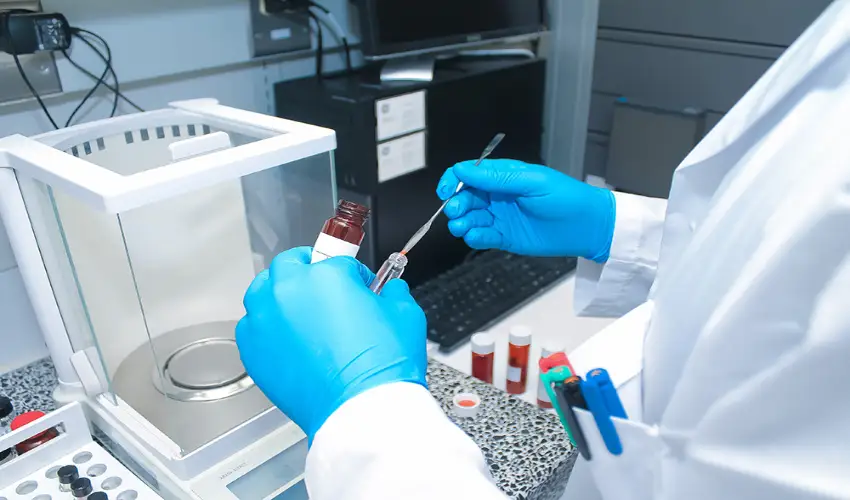
Understanding the Impact of Theratetech on Modern Healthcare
The healthcare industry has always been one of the fastest-evolving sectors, driven by continuous innovation, advanced technology, and the growing demand for better patient care. Among the recent technological revolutions in healthcare, Theratetech has emerged as a transformative force. This innovative approach combines therapeutic techniques with cutting-edge technology to redefine how healthcare professionals deliver treatment and manage patient outcomes. Understanding the impact of Theratetech on modern healthcare provides insight into how digital transformation and medical science are merging to create a more effective, efficient, and personalized healthcare system.
Theratetech is not just another advancement in medical technology—it represents a complete integration of digital tools into therapeutic practices. It leverages data analytics, artificial intelligence (AI), wearable devices, and remote monitoring systems to enhance the way healthcare services are delivered. By combining therapy and technology, https://theratetech.com/ enables real-time tracking of patient progress, more accurate diagnoses, and tailored treatment plans based on individual needs. For both healthcare providers and patients, this means more proactive and data-driven care rather than traditional reactive treatment methods.
One of the most significant benefits of Theratetech is its role in improving patient engagement and adherence to treatment. Patients are often more motivated to follow their prescribed therapies when they can monitor their progress digitally. With the help of mobile applications, virtual reality tools, and remote devices, patients can stay connected with their healthcare providers from the comfort of their homes. This not only makes healthcare more accessible but also helps reduce hospital visits, saving both time and money. For patients with chronic conditions, continuous digital monitoring ensures early detection of potential issues, allowing timely interventions before complications arise.
Moreover, Theratetech has significantly improved the efficiency of healthcare professionals. By automating data collection, analysis, and reporting, healthcare workers can focus more on patient care rather than administrative tasks. AI-powered tools analyze patient data and generate insights that help doctors make evidence-based decisions quickly. This integration also minimizes human error, as digital systems are capable of detecting irregularities or patterns that may be overlooked in traditional methods. As a result, medical practitioners can deliver more precise and personalized care to their patients.
Another critical aspect of Theratetech is its contribution to telemedicine and remote healthcare services. In a post-pandemic world, virtual healthcare has become an essential component of modern medicine. Theratetech enhances telemedicine by providing real-time health data, video consultations, and digital treatment programs that can be monitored remotely. Patients in rural or underserved areas now have access to quality healthcare without the need for long-distance travel. This advancement has bridged the gap between healthcare accessibility and geographical limitations, ensuring that quality medical services reach everyone, regardless of location.
Theratetech has also played a major role in advancing rehabilitation and mental health therapies. For instance, virtual reality-based therapies help patients recovering from injuries or neurological conditions regain mobility and cognitive function in an interactive and engaging way. Similarly, mental health professionals are using digital therapeutic platforms to deliver online counseling, mood tracking, and cognitive behavioral therapy sessions. These innovations provide comfort and flexibility for patients while ensuring that therapy remains effective and consistent.
From a data perspective, Theratetech has opened new doors for medical research and predictive analytics. The data collected from wearable devices, patient monitoring systems, and therapy apps can be analyzed to identify health trends, disease patterns, and treatment outcomes. This helps researchers develop more accurate predictive models for diseases and create new treatment strategies. Furthermore, healthcare organizations can use this data to improve hospital management, reduce readmission rates, and enhance overall healthcare quality.
However, despite its numerous advantages, Theratetech also brings challenges that must be addressed. Data privacy and cybersecurity remain major concerns as sensitive patient information is stored and transmitted digitally. Ensuring that healthcare systems comply with strict data protection regulations is essential to maintain patient trust. Additionally, the integration of Theratetech requires adequate training for healthcare professionals to use these technologies effectively. Bridging the digital skills gap and ensuring equitable access to technology are crucial steps in realizing the full potential of Theratetech.
Another challenge is cost implementation. While Theratetech promises long-term savings and efficiency, the initial investment in technology infrastructure can be high for smaller healthcare facilities. Governments and private sectors need to collaborate to create funding models or partnerships that make Theratetech solutions accessible to all healthcare providers, regardless of their size or budget.
Looking toward the future, Theratetech is expected to continue revolutionizing the healthcare landscape. The integration of artificial intelligence, robotics, and Internet of Things (IoT) devices will make medical care even more precise and responsive. Personalized medicine will become the norm, where treatment is designed around a patient’s genetic makeup and lifestyle data. This evolution will ultimately shift the focus from disease treatment to disease prevention, creating a healthier global population.
In conclusion, Theratetech has become a cornerstone of modern healthcare innovation. By blending technology with therapeutic practices, it enhances the quality, accessibility, and efficiency of medical care. From improving patient engagement to advancing telemedicine and data-driven treatment, its impact is profound and far-reaching. As healthcare systems around the world continue to adopt Theratetech solutions, the future of medicine will be defined by intelligent, connected, and personalized care. While challenges such as data privacy and implementation costs remain, the potential benefits far outweigh the obstacles. Theratetech is not just transforming healthcare—it is shaping the future of how we experience wellness, recovery, and life itself.
